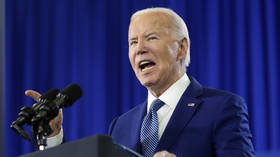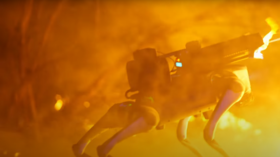Interview with Dmitry Rogozin
Bucharest is hosting its first NATO summit this week. Dmitry Rogozin, Russia’s envoy to NATO, thinks the issue of Afghanistan is in fact a key tension point for the whole Bucharest summit.
“Afghanistan, in fact, is a key tension point for the whole Bucharest summit. Journalists often pay too much attention to a certain issue, while the main issue is different. Here, Afghanistan is number one. Our colleagues and partners in the Alliance understand that, without Russia’s help, the International Security Assistance Force can’t expect to see any success in Afghanistan.
First, it’s about the logistical support which Russia can provide to assist the operation being carried out under the UN mandate. It’s highly probable that Russia will enter an agreement but it won’t actually be the signing of a contract. It will be an exchange of letters confirming Russia’s willingness to provide its territory for ground transit of ISAF cargo. I’d like to stress it’s not military cargo, because we’re not going to be involved in the military part of the Afghan operation. We were there in the 1980s, and we didn’t like it. That’s not going to happen again.
As for water, paper and other things necessary to ensure proper living conditions for the military contingent based there, we’re ready to let that pass through our territory.
You know, the main problem our partners have confronted here is working with political documents. We don’t know what their problem is. In fact, the problem is our partners don’t want to adopt a definite partnership philosophy in this document, which we want to further facilitate to make it clear where we stand. We insist that the idea of a partnership is that the security of a country, or a group of countries, cannot be ensured at the expense of a third party’s security. I think it’s quite obvious. Every country has its sovereignty and its national interests, but this sovereignty doesn’t extend beyond the end of my nose. This is where my sovereignty starts, and my national interests, as a country. So what’s the big deal putting your signature underneath?
If we grind to a halt over this issue, the philosophy of our partnership, then it’s very hard to talk about any potential cooperation. We now understand why we’re getting stuck. Partnership means hearing your partner, and listening to you partner, and taking their interests into account. We’re now saying when it comes to Ukraine and Georgia: ‘Don’t do that, don’t de-stabilise the situation in the region, don’t meddle in our affairs, we have our own ways to maintain security’. Nevertheless, our interests are not taken into account. Can you really speak about partnership here? You see, it’s quite complicated.
It’s obvious that President-elect Dmitry Medvedev is the acting President’s closest ally. On March 2, people voted for the continuity of his course. This means we see Mr. Medvedev as a person who’s continuing to develop certain values in Russian foreign and domestic policy. Knowing Dmitry Medvedev personally, I can say he’s a consistent and firm leader. Believe me, I’ve headed a major opposition faction in the Russian parliament, and I’ve worked with him as the head of the Presidential Administration. He was a tough partner for me, but he’s a very good choice as the head of state. Putin knows who he supports, and people didn’t vote in vain. I don’t think there are going to be any global changes in overall strategy and policy. Russia is still a predictable partner in all areas, including foreign policy”.












